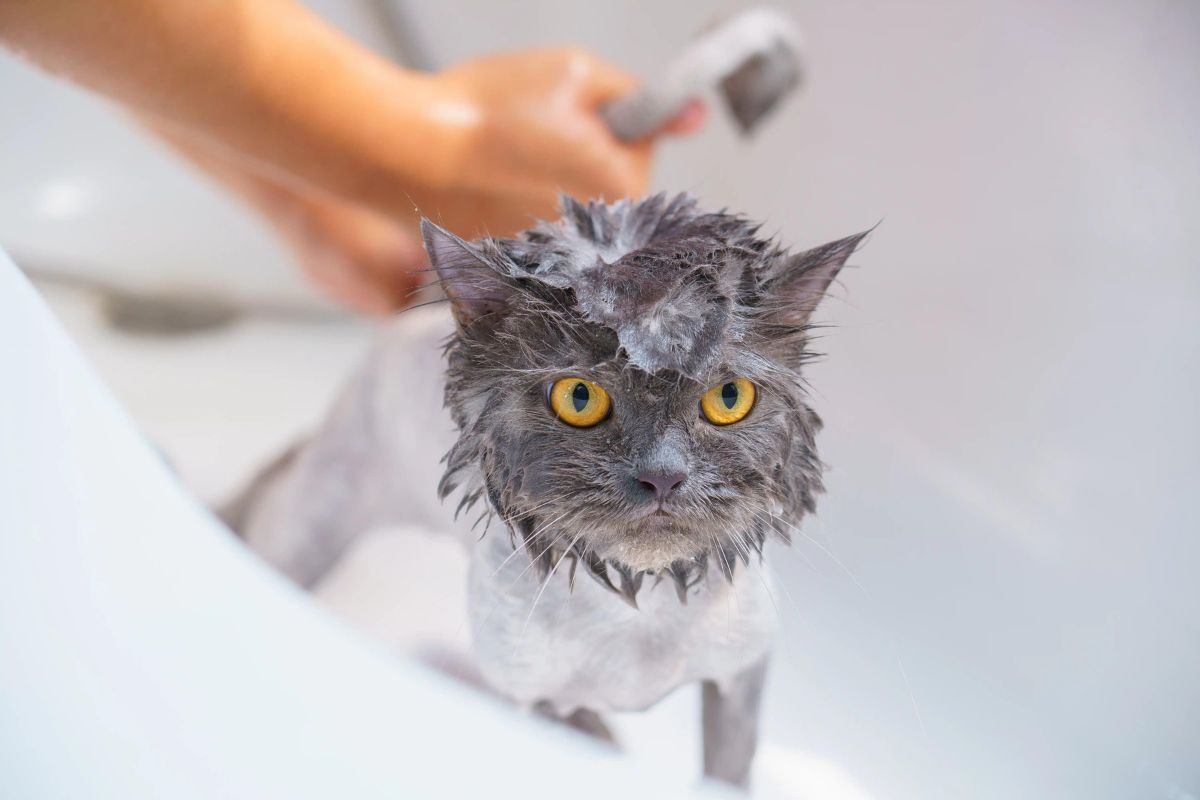Exploring the question of whether cats like baths involves understanding their natural behaviors, preferences, and the ways in which water interacts with their unique biology. While an in-depth look can shed light on general tendencies, it’s essential to remember that individual cats may defy these norms.
Cats and Their Natural Instincts
Historical Perspective
Cats are descended from desert-dwelling animals, which explains why they have evolved to conserve water efficiently and often show a preference for obtaining moisture from their food. This lineage also contributes to the common observation that many cats display an aversion to water, unlike their canine counterparts or other animals that may relish in swimming or bathing.
Natural Grooming Habits
Cats are fastidious groomers, dedicating a significant portion of their day to licking and cleaning their fur with their tongues. This behavior not only keeps them clean but also aids in temperature regulation. Their tongues are specially designed for this purpose, with tiny, hook-like structures that help remove dirt and spread natural oils throughout their coat. This natural grooming process is one reason cats may not require frequent baths.
Understanding the Cat’s Dislike for Water
Water Aversion Theories
Several theories have been posited to explain why many cats dislike water. One relates to the cat’s fur and the discomfort or inconvenience they experience when it becomes waterlogged. Unlike certain dog breeds with waterproof coats, a cat’s fur does not repel water effectively, making it heavy and slow to dry.
Sensory Overload
Cats have highly sensitive senses, and water can create an overload of unfamiliar sights, sounds, and sensations. The noise of running water, the feel of water on their body, and even the smell can be overwhelming or distressing to some cats.
Negative Experiences
Cats who have had negative experiences with water, such as being forced into a bath when they were not dirty or struggling to escape, might develop a lifelong aversion. Early socialization to water can influence a cat’s tolerance.
Exceptions to the Rule
Despite the general aversion, some cats show either a fascination or a tolerance toward water. Breeds like the Turkish Van are nicknamed “the swimming cat” for their unusual love of water. Individual cats, regardless of breed, may also display unique behaviors, including playing with dripping faucets or even joining their owners in the shower.
Bathing a Cat: A Necessary Evil?
Health and Hygiene
While cats are typically excellent at keeping themselves clean, certain circumstances necessitate a bath:
- When a cat gets into a sticky or toxic substance that they should not ingest
- Cats with long fur that mats easily
- Overweight cats that cannot reach all areas of their body
- Elderly or sick cats that lack the energy or ability to groom themselves effectively
Acclimating Your Cat to Water
If bathing becomes necessary, acclimating your cat to the process gradually can make the experience more tolerable for both of you:
- Start bathing them at a young age, if possible.
- Use lukewarm water and a non-slip mat to make them feel secure.
- Keep baths short and calm, speaking in soothing tones.
- A detachable shower head or gentle pitcher can help control the water flow and make it less intimidating.
Seek Professional Help
For cats that remain highly stressed by water, consider seeking the assistance of a professional groomer familiar with handling cats.
Making Bath Time Less Stressful
Should bathing your cat become essential:
- Preparation is Key: Have all your supplies ready before introducing your cat to the water.
- Positive Reinforcement: Reward your cat with treats and praise throughout the process.
- Patience and Understanding: Recognize the signs of stress and know when to give your cat a break.
Alternatives to Traditional Baths
For owners of cats who cannot stand water, alternatives like cat wipes, dry shampoo, or a damp cloth can be effective for spot cleaning. These methods can reduce the stress associated with baths and still keep your cat clean.
Conclusion
In conclusion, while it’s generally true that cats do not like baths due to their natural instincts and grooming habits, there are exceptions and techniques to mitigate their distress. Understanding your cat’s needs and temperament is key to keeping them clean in a way that is least stressful for everyone involved. It’s also a reminder of the diverse personalities that cats have, making them such intriguing and beloved companions.

